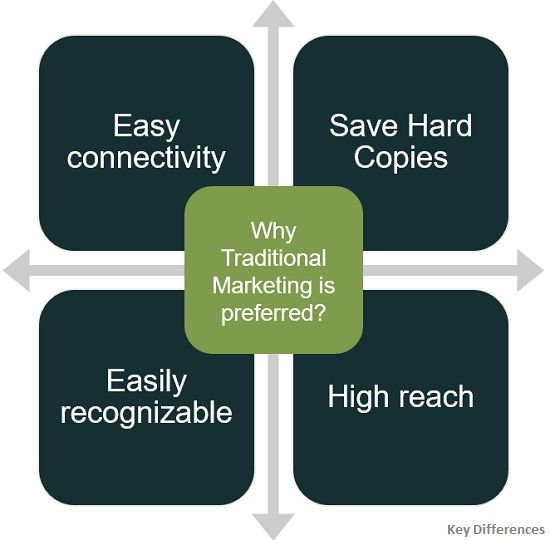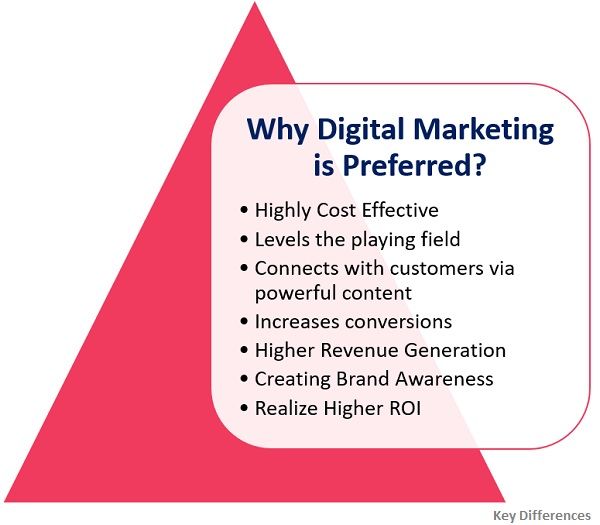n the digital age, businesses need to be where their customers are – online. Digital marketing has become an essential part of any business strategy due to its immense potential in reaching and engaging a wider audience. This article explores why digital marketing is crucial for your business and how it can help you grow, generate leads, and stay competitive in the ever-evolving marketplace.

Table of Contents
- Introduction
- What is Digital Marketing?
- Key Benefits of Digital Marketing
- Digital Marketing Channels and Techniques
- SEO (Search Engine Optimization)
- SEM (Search Engine Marketing)
- Social Media Marketing (SMM)
- Content Marketing
- Email Marketing
- Mobile Marketing
- Digital Marketing vs Traditional Marketing
- Understanding Digital Marketing Analytics
- How Digital Marketing Drives Sales and Revenue
- The Role of Digital Marketing in Building Brand Awareness
- Case Studies of Successful Digital Marketing Campaigns
- Conclusion
1. Introduction
In the modern business landscape, digital marketing plays a pivotal role in connecting businesses to their target audience. From small startups to large corporations, companies of all sizes leverage the power of digital marketing to achieve their goals. But what makes digital marketing so important?
This article provides an in-depth look at why digital marketing is indispensable for your business and how it can drive growth, increase customer engagement, and improve ROI.
2. What is Digital Marketing?
Digital marketing refers to the use of digital channels, such as search engines, social media, websites, email, and mobile apps, to promote products or services. It encompasses various techniques and strategies that allow businesses to reach their target audience effectively.
Key Components of Digital Marketing:
| Component | Description |
|---|---|
| SEO | Improving website visibility on search engines. |
| SEM | Paid advertising strategies on search engines. |
| Social Media | Promoting products/services on platforms like Facebook, Instagram, etc. |
| Email Marketing | Sending targeted emails to customers for promotions and updates. |
| Content Marketing | Creating and sharing valuable content to attract customers. |
3. Key Benefits of Digital Marketing
Digital marketing offers several advantages for businesses, making it an essential tool in today’s competitive market.

Table: Key Benefits of Digital Marketing
| Benefit | Description |
|---|---|
| Wider Reach | You can reach a global audience 24/7. |
| Cost-Effective | Digital marketing is more affordable than traditional marketing. |
| Targeted Audience | Digital marketing allows you to target specific demographics and interests. |
| Real-Time Analytics | Track and measure your campaigns in real-time. |
| Higher Engagement | Engaging content and social media increase customer interaction. |
| Improved ROI | Digital marketing typically offers better returns compared to traditional methods. |
Diagram: Digital Marketing Reach
(Include a diagram showing the global reach of digital marketing versus traditional marketing.)
4. Digital Marketing Channels and Techniques
Search Engine Optimization (SEO):
SEO is the process of optimizing a website to rank higher on search engine results pages (SERPs). By targeting specific keywords and improving site structure, businesses can increase organic traffic and gain visibility.
Search Engine Marketing (SEM):
SEM involves paid strategies like Google Ads to appear at the top of search results. With SEM, businesses can drive immediate traffic and boost sales by bidding on relevant keywords.
Social Media Marketing (SMM):
Social media platforms like Facebook, Instagram, LinkedIn, and Twitter offer businesses the chance to connect with their audience, promote content, and generate leads through paid ads and organic content.
Content Marketing:
Content marketing involves creating valuable content such as blogs, videos, podcasts, and infographics to attract, inform, and engage customers. This strategy helps businesses build trust and authority in their industry.
Email Marketing:
Email marketing allows businesses to directly communicate with customers through newsletters, promotional offers, and product updates. Personalized and segmented email campaigns help increase customer retention.
Mobile Marketing:
With the increasing use of smartphones, mobile marketing is an effective way to reach customers. From SMS campaigns to mobile app promotions, businesses can engage users on-the-go.
Graph: Digital Marketing Channels Performance
(Include a bar graph comparing the effectiveness of SEO, SEM, Social Media, Content, Email, and Mobile Marketing in terms of engagement, ROI, and conversion rates.)
5. Digital Marketing vs Traditional Marketing
Digital marketing is often compared to traditional marketing, which includes methods such as print advertising, TV commercials, and radio ads. While traditional marketing has its place, digital marketing provides several advantages that make it more appealing for modern businesses.
| Factor | Digital Marketing | Traditional Marketing |
|---|---|---|
| Cost | More affordable, especially for small businesses. | Expensive, especially for larger campaigns. |
| Targeting | Highly targeted based on demographics, interests, etc. | Broad targeting, often reaching an untapped audience. |
| Measurability | Real-time data and analytics available. | Difficult to measure effectiveness. |
| Engagement | Higher engagement through social media, content, etc. | Lower engagement, more passive forms of communication. |
Image: Digital Marketing vs Traditional Marketing Comparison
(an image comparing the advantages and limitations of both digital and traditional marketing.)


6. Understanding Digital Marketing Analytics
Digital marketing provides access to real-time data and analytics, allowing businesses to measure campaign performance and make data-driven decisions. Analytics tools like Google Analytics help track website traffic, conversion rates, and user behavior, enabling businesses to optimize their strategies.
| Metric | Purpose |
|---|---|
| Traffic | Measure the number of visitors to your website. |
| Conversion Rate | Track the percentage of visitors who take a desired action. |
| Bounce Rate | Measure the percentage of visitors who leave without engaging. |
| Engagement Rate | Track interactions such as likes, shares, and comments. |
7. How Digital Marketing Drives Sales and Revenue
Digital marketing can directly impact your bottom line by driving more qualified leads to your website. By optimizing campaigns and targeting specific demographics, businesses can improve conversion rates, leading to higher sales and revenue.
Diagram: Sales Funnel
(Add a diagram showing the sales funnel: Awareness → Interest → Decision → Action.)
8. The Role of Digital Marketing in Building Brand Awareness
Building brand awareness is one of the primary goals of digital marketing. Through consistent content creation, social media presence, and paid ads, businesses can reach new audiences and establish their brand in the market.https://www.rebootonline.com/
9. Case Studies of Successful Digital Marketing Campaigns
- Nike’s “Just Do It” Campaign:
Nike used social media and influencer marketing to engage their audience and build a powerful brand identity. - Coca-Cola’s “Share a Coke” Campaign:
Coca-Cola personalized their marketing strategy by replacing their logo with popular names on bottles, leading to increased engagement and sales.
contact me – https://vanshika.digital/
10. Conclusion
Digital marketing is no longer optional for businesses; it is essential. With its ability to target specific audiences, measure campaign success, and drive ROI, digital marketing has proven to be one of the most effective tools for business growth. Whether you’re a small business owner or part of a large corporation, embracing digital marketing can help you stay competitive in the marketplace.
Next Steps:
- Get started with SEO, SEM, and social media campaigns.
- Track results and refine strategies for improved ROI.
- Continuously adapt to emerging digital marketing trends.
By leveraging the power of digital marketing, your business can achieve greater visibility, higher engagement, and increased sales. Stay ahead of the competition and harness the full potential of the digital world!
